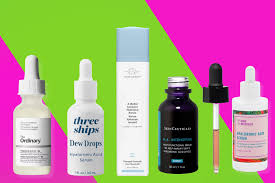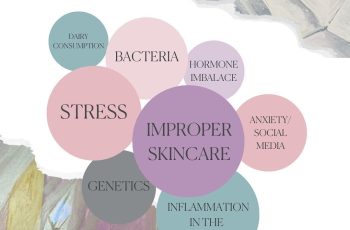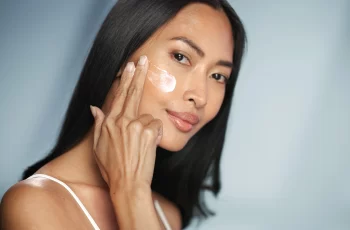
Is Hyaluronic Acid Serum a Waste of Money?
Hyaluronic acid (HA) has quickly become a staple in many people’s skincare routines. Whether it’s in face creams, serums, or toners, HA is touted as an essential ingredient that can transform your skin by delivering deep hydration and plumping effects. But with its growing popularity comes a question that many people have: Is hyaluronic acid worth the investment? Given the often high price tags attached to HA serums, it’s only natural to wonder if they live up to their reputation—or if you can achieve similar results with more affordable ingredients. Let’s explore the benefits, drawbacks, and whether you really need to be spending money on these products.
What Is Hyaluronic Acid?
Before diving into whether hyaluronic acid serums are a waste of money, let’s first understand what hyaluronic acid actually is. HA is a naturally occurring substance in the body, specifically in connective tissues, skin, and eyes. It acts as a humectant, meaning it has the ability to attract and retain water. This makes it highly effective in skincare products because it helps keep the skin hydrated and plump by drawing moisture from the air into the skin. Its ability to retain moisture is one of the key reasons why it has become such a popular ingredient in modern skincare routines.
What Makes Hyaluronic Acid Serums Popular?
Hyaluronic acid serums are designed to deliver a concentrated amount of the ingredient directly to the skin, ensuring quick and efficient hydration. The serums typically come in lightweight formulas, which makes them easy to layer under moisturizers or sunscreens.
The immediate effect of HA is what makes it so appealing. Upon application, HA attracts water and gives the skin a temporary plumping effect, minimizing the appearance of fine lines and wrinkles. This can make your skin appear smoother, more hydrated, and youthful almost instantly—especially beneficial before an important event or photoshoot.
However, there are some important points to consider when evaluating whether an HA serum is worth the cost.
Do Hyaluronic Acid Serums Work?
The short answer is yes—hyaluronic acid serums do work, but the effects are often temporary. HA’s primary benefit is its ability to attract water to the skin’s surface, making it look plump and hydrated right after application. This can help reduce the appearance of fine lines and wrinkles. For special occasions, such as a date or a big event, an HA serum is an excellent choice to quickly enhance your skin’s appearance.
That said, HA serums may not be the best for long-term skin concerns, such as deep wrinkles or skin aging. While they can provide a temporary improvement in skin hydration, they don’t deliver the long-lasting results of more powerful ingredients, such as retinoids, growth factors, or exosomes, which work at a deeper level in the skin. So, if you’re looking for a quick boost of hydration or preparing for a big event, HA serums are a great option. But if you’re seeking long-term anti-aging solutions, you might want to consider other products.
When Are Hyaluronic Acid Serums Worth the Money?
Hyaluronic acid serums can be worth the investment in certain circumstances. They are incredibly effective for people who need instant hydration or are looking to plump up their skin temporarily before an important occasion. They also help other active ingredients penetrate the skin better. For instance, if you’re using a serum containing vitamin C or growth factors, applying HA serum beforehand can enhance the effectiveness of those ingredients by allowing them to absorb more effectively.
However, when it comes to long-term anti-aging benefits, HA is not the most powerful ingredient available. While it does hydrate and temporarily smooth the skin, it does not have the same proven anti-aging effects as other ingredients like retinoids, stem cells, or exosomes, which work by stimulating skin regeneration and improving skin structure over time.
If you have the budget for it and are simply looking for a hydration boost, an HA serum can be a worthwhile investment. But if you’re primarily concerned with skin aging or hyperpigmentation, you might want to combine your HA serum with more potent treatments, such as retinoids or growth factors, for more comprehensive results.
Are Expensive HA Serums Better Than Inexpensive Ones?
Not necessarily. While high-end HA serums such as those from SkinMedica or Skinceuticals often market themselves as having superior formulations, the molecular size of HA in the serum is a more important factor than the price. Hyaluronic acid comes in various molecular weights, which determine how it behaves in skincare products.
Shorter, low-molecular-weight HA penetrates deeper into the skin, helping active ingredients like growth factors or retinoids to be absorbed more effectively.
Longer, high-molecular-weight HA stays on the skin’s surface, where it draws in water and creates the temporary plumping effect.
Many expensive HA serums combine both types of HA to provide both deep hydration and surface-level plumping. However, this doesn’t necessarily mean they work better than cheaper options that contain just one type of HA. In fact, cheaper HA serums may still deliver similar results without the higher cost.
So, the price of an HA serum doesn’t necessarily correlate to its effectiveness. Instead, it’s more important to consider the molecular size of the HA used and the overall formulation of the product.
Hyaluronic Acid vs. Other Humectants
Hyaluronic acid is a humectant, which means it draws moisture from the air into your skin. But it’s not the only humectant available, and sometimes other ingredients might offer similar benefits at a lower cost. One such ingredient is glycerin, which is another humectant with impressive moisture-attracting capabilities.
Glycerin works by moving through the skin’s Aquaporin channels (small water channels in cells) to hydrate the skin. This allows glycerin to move moisture from cell to cell, providing hydration at multiple levels in the skin.
While glycerin is a highly effective and affordable alternative to HA, it is important to note that glycerin doesn’t have the same plumping effect as hyaluronic acid. HA’s ability to temporarily plump fine lines and wrinkles is what sets it apart.
Moreover, you can use both HA and glycerin together in your skincare routine. Both ingredients work synergistically to hydrate and penetrate the skin, and neither has to be applied in any specific order.
So, if you’re looking for an affordable alternative, glycerin might be a good option. However, if you’re looking for that plumped-up look or need to hydrate your skin immediately, HA still has a unique advantage.
Is Hyaluronic Acid the Best Anti-Aging Ingredient?
Hyaluronic acid is not the best anti-aging ingredient on its own. While it does provide instant hydration and temporarily reduces the appearance of fine lines, it doesn’t address other aspects of aging, such as skin laxity, pigmentation, or wrinkle formation.
If you are looking for long-term anti-aging results, you should focus on ingredients like retinoids, vitamin C, growth factors, or stem cells, which help to regenerate the skin and improve its overall structure. However, HA can complement these ingredients. By using HA in combination with other anti-aging products, you can enhance hydration, promote better absorption of actives, and achieve more comprehensive results.
Conclusion: Is Hyaluronic Acid Serum Worth the Money?
The answer depends on your skin goals and budget. If you’re looking for an instant plump and hydration boost, Hyaluronic acid serums are absolutely worth it—especially for special events or when you need to look your best quickly. However, if you’re primarily focused on long-term anti-aging or treating deeper skin concerns, HA alone won’t provide the results you’re after.
Expensive HA serums aren’t necessarily better than affordable options. The molecular size of the HA in the serum plays a more significant role in its effectiveness than the price tag. Additionally, alternatives like glycerin can provide similar hydration benefits at a fraction of the cost.
If you’re unsure about whether an HA serum is right for you, or if you want to ensure you’re using the right products for your skin type, taking a Baumann Skin Type quiz could help guide your decision and lead you to a more personalized skincare routine.
Ultimately, hyaluronic acid is an excellent addition to many skincare routines, but it’s essential to consider your skin type and goals before splurging on expensive formulations.


